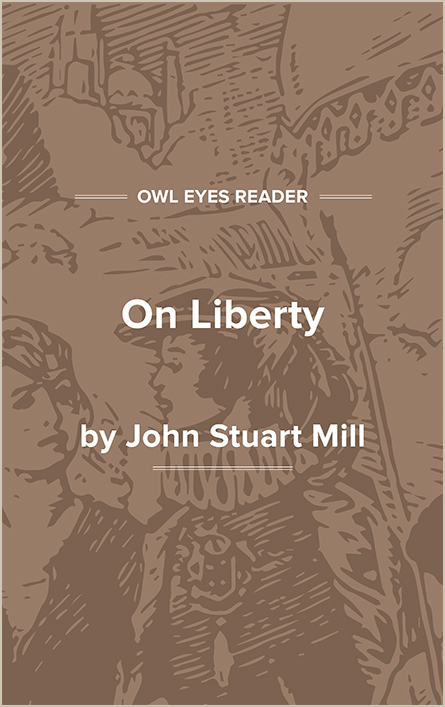Analysis Pages
Quote Analysis in On Liberty
Quote Analysis Examples in On Liberty:
Chapter I. Introductory.
🔒"The disposition of mankind, whether as rulers or as fellow-citizens to impose their own opinions and inclinations as a rule of conduct on others, is so energetically supported by some of the best and by some of the worst feelings incident to human nature, that it is hardly ever kept under restraint by anything but want of power; and as the power is not declining, but growing, unless a strong barrier of moral conviction can be raised against the mischief, we must expect, in the present circumstances of the world, to see it increase..." See in text (Chapter I. Introductory.)
"this encroachment is not one of the evils which tend spontaneously to disappear, but, on the contrary, to grow more and more formidable..." See in text (Chapter I. Introductory.)
"In the modern world, the greater size of political communities, and above all, the separation between spiritual and temporal authority (which placed the direction of men's consciences in other hands than those which controlled their worldly affairs), prevented so great an interference by law in the details of private life; but the engines of moral repression have been wielded more strenuously against divergence from the reigning opinion in self-regarding, than even in social matters..." See in text (Chapter I. Introductory.)
"And it seems to me that in consequence of this absence of rule or principle, one side is at present as often wrong as the other; the interference of government is, with about equal frequency, improperly invoked and improperly condemned..." See in text (Chapter I. Introductory.)
"But, as yet, there is a considerable amount of feeling ready to be called forth against any attempt of the law to control individuals in things in which they have not hitherto been accustomed to be controlled by it; and this with very little discrimination as to whether the matter is, or is not, within the legitimate sphere of legal control; insomuch that the feeling, highly salutary on the whole, is perhaps quite as often misplaced as well grounded in the particular instances of its application..." See in text (Chapter I. Introductory.)
"Wherever the sentiment of the majority is still genuine and intense, it is found to have abated little of its claim to be obeyed..." See in text (Chapter I. Introductory.)
"In the minds of almost all religious persons, even in the most tolerant countries, the duty of toleration is admitted with tacit reserves..." See in text (Chapter I. Introductory.)
"The only case in which the higher ground has been taken on principle and maintained with consistency, by any but an individual here and there, is that of religious belief: a case instructive in many ways, and not least so as forming a most striking instance of the fallibility of what is called the moral sense: for the odium theologicum, in a sincere bigot, is one of the most unequivocal cases of moral feeling..." See in text (Chapter I. Introductory.)
" To an ordinary man, however, his own preference, thus supported, is not only a perfectly satisfactory reason, but the only one he generally has for any of his notions of morality, taste, or propriety, which are not expressly written in his religious creed; and his chief guide in the interpretation even of that..." See in text (Chapter I. Introductory.)
"There is a limit to the legitimate interference of collective opinion with individual independence..." See in text (Chapter I. Introductory.)
"precautions are as much needed against this, as against any other abuse of power..." See in text (Chapter I. Introductory.)
"Their power was but the nation's own power, concentrated, and in a form convenient for exercise..." See in text (Chapter I. Introductory.)
"To the first of these modes of limitation, the ruling power, in most European countries, was compelled, more or less, to submit..." See in text (Chapter I. Introductory.)
"But as the king of the vultures would be no less bent upon preying on the flock than any of the minor harpies, it was indispensable to be in a perpetual attitude of defence against his beak and claws..." See in text (Chapter I. Introductory.)
"To prevent the weaker members of the community from being preyed upon by innumerable vultures, it was needful that there should be an animal of prey stronger than the rest, commissioned to keep them down..." See in text (Chapter I. Introductory.)
"the stage of progress into which the more civilised portions of the species have now entered..." See in text (Chapter I. Introductory.)

